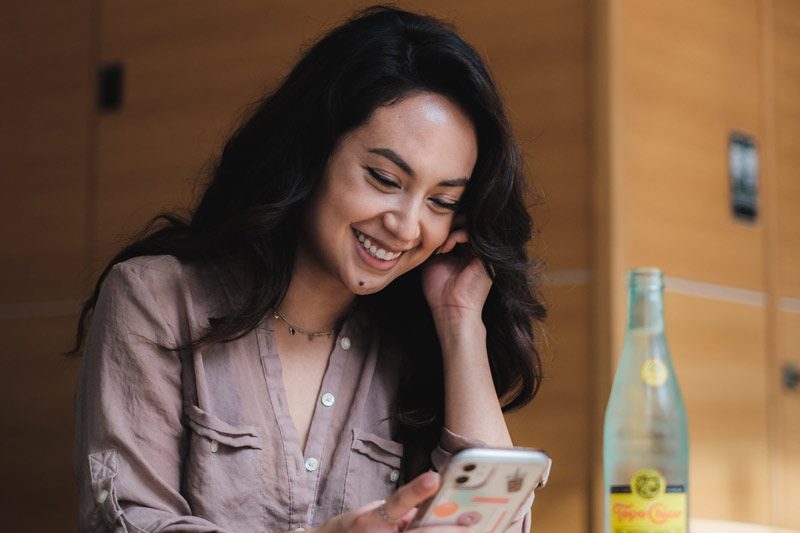According to the National Institute of Mental Health, one in five US adults experiences mental health symptoms, with disorders varying in severity. From an economic standpoint, the demand for mental health services is dramatically outgrowing the supply. In a survey by the American Psychological Association, a third of psychologists said they are seeing more patients since the start of the COVID-19 pandemic, and nearly three-quarters reported an increase in demand for treatment. Mental health apps can help relieve some of the stress on the system.
In recent years mental health apps have become highly user-centric as more people turn to them for mood tracking, symptoms management, and booking appointments. Digital solutions dedicated to anxiety and mental healthcare can’t wholly replace medical treatment and therapies. But users are already reaping the benefits of these apps, which help them manage stress and anxiety, depression, and grief.
Here is a list of the 5 best anxiety-relief apps that are free, secure, and widely available in app stores.
1. Sanvello: Anxiety and Depression
Sanvello is a one-stop solution for anxiety, panic, stress, and depression. It works as a complete feel-better toolkit with options like therapy, coaching, self-care, mood tracker, and community. According to their official listing, the premium version of this app is currently used by 40 million Americans.
What sets Sanvello apart is its organizational-level popularity. It is currently included in many health plans and insurance policies in the US.
The basic version of Sanvello is free to download and use, while you can upgrade to premium for unlimited use of advanced features like matching up with therapists and applying for coaching sessions. It has an average rating of 4.8 on the App Store and 4.5 on the Google Play store.
2. Calm
Calm is inarguably the best anxiety-relief app available online. Dedicated to mindfulness and relaxation, the app helps with mood tracking, sleep, and meditation. It has guided exercises and meditation activities fit for beginners to professionals.
The basic version of Calm is free to download. It has a 4.8 average rating on the App Store, 4.2 on the Google Play store, and a 7-day free trial for premium features. Users are required to make in-app purchases to use the premium features.
3. MindShift CBT
MindShift CBT is a free anxiety-relief app that works on the principles of cognitive behavior therapy. It is a feature-packed app that allows users to mark mood check-ins, track their progress, complete challenges, and meditate on guided sessions.
The app has a minimalist design and offers easy navigation to reduce stress, worry, and panic. It has an average rating of 4.1 on the Google Play store and 4.3 on the App Store.
4. Anxiety Relief Hypnosis – Stress, Panic Attacks
Anxiety Relief Hypnosis is an Android app that leverages audio and music soundtracks to relieve overwhelming conditions, anger issues, obsessive-compulsive disorder (OCD), panic, and symptoms associated with post-traumatic stress disorder (PTSD).
The app is free to download and use with default settings. Users need to make in-app purchases to customize app settings.
5. Wysa: Anxiety, Depression & Sleep Therapy Chatbot
Wysa is an AI-driven chatbot that works as an anxiety helper, mindfulness coach, and happiness buddy altogether. The bot helps with sleep, insomnia, depression, anxiety, panic attacks, and anger. With the premium version, users can also book sessions with coaches and use scientific tools to relieve anxiety and depression
It has an average rating of 4.8 on the Google Play store and 4.9 on the App Store. While Wysa is free to download and use, subscribers must pay an annual fee of $79.99 for the premium version and $29.99 a week for therapist access.
It is seemingly pricey for beginner-level users but is a super-helpful tool for introverts who need conversational help yet feel scared or shy about sharing their feelings.
Wrapping Up
While these apps can’t eliminate the need for treatment, they can significantly increase mental health awareness. These apps help users become mindful and reduce feelings of loneliness and worry. On a large scale, these apps assist people in identifying their symptoms and ranking their severity. Users who are aware of their triggers can seek help and match themselves with the right care medical practitioners. Most importantly, these apps follow the ethical standards of mobile app development and are accessible for everyone regardless of their geographic or medical background.
About the Author: Saba Sohail is a tech enthusiast with academic majors in Public Economics and Information Sciences. A content strategist at Tekrevol, her favorite niches are community building, design thinking, cybersecurity, graphics, and digital marketing. She is deeply interested in sharing how leading technologies can disrupt the overall public ecosystem and how we can leverage tech to give back to the community.
Photo by Airam Dato-on on Unsplash
The opinions and views expressed in any guest blog post do not necessarily reflect those of www.rtor.org or its sponsor, Laurel House, Inc. The author and www.rtor.org have no affiliations with any products or services mentioned in the article or linked to therein. Guest Authors may have affiliations to products mentioned or linked to in their author bios.
Recommended for You
- How a Health Cleanse Can Reset Your Body and Mind - April 16, 2025
- The Truth about Relapse in Addiction Recovery - April 14, 2025
- The Power of Peer Support in Mental Health Recovery - April 10, 2025






Thanks for sharing such an amazing and informative blog. As a therapist, I agree with this that these anxiety apps are really great to improve mental health issues. I also use one of the app and it’s really helpful. This is good for those who are suffering from mental health issues. Keep up sharing such kind of great blog.